Presentations

Flourishing, our 25th online breastfeeding conference in English covers a wide range of topics to inform and guide your clinical practice and to inspire and challenge your thinking about breastfeeding, nutrition and human lactation.
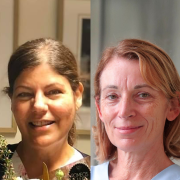
Innovative breastfeeding education
Michelle Simmons, RN, RM, IBCLC, Master of Nursing (Clinical leadership) - Read moreInnovative breastfeeding education
Michelle Simmons, RN, RM, IBCLC, Master of Nursing (Clinical leadership)
Michelle Simmons has completed post graduate studies in Neonatal Nursing, Midwifery, Master of Nursing (Clinical Leadership) and has been an IBCLC for 18 years. Michelle is a BFHI lead assessor and a member of the Australian College of Midwives as well as past president of LCANZ. Michelle was an expert working group member for the Australian Dental Association (ADA) Ankyloglossia and oral frena consensus statement released in 2020. Michelle’s is currently the Clinical Midwife Consultant, Postnatal and Infant Feeding, Westmead Hospital, Western Sydney Local Health District, NSW and passionate about promoting and supporting a strong breastfeeding culture in Australia.
Rachel Jones, RN, RM, IBCLC, Post Grad Cert Nursing Leadership
Rachel Jones is a Clinical Midwifery Consultant for infant feeding in NICU at Westmead hospital, Sydney, Australia.
A neonatal nurse/midwife & board certified lactation consultant, Rachel has been involved in clinical trial coordination and research, clinical education & development of teaching programs across the perinatal specialty. Focusing on long term consequences to a disruption in normal infant and maternal attachment, Rachel has a led a collaborative group of CPI projects named The IRIIS (Interventions for Reducing the Impact of Infant and maternal Separation) Taskforce. Goals include identifying avoidable short-term admissions to NICU, implementing changes to reduce nursery admission and reducing the impact of unavoidable separations that disrupt attachment and establishment of optimal feeding. Rachel plans to complete her Masters in Research investigating the fragmented care that can result from a neonatal admission and examining the effect of maternal/ infant separation on feeding outcomes after nursery admission.
Innovative breastfeeding education
Breastfeeding SCORPIO is an innovative evidence based breastfeeding education program for health care professionals, including a train-the-trainer component. SCORPIO is a method of teaching clinical skills and formative assessment with feedback, ensuring skills have been mastered. SCORPIO consists of three essential components; a participant guide, teaching stations and a formative assessment.
1.00 L (VII) CERP
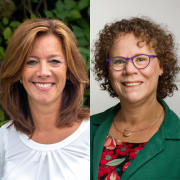
How to deal with the mastitis-spectrum, the Dutch way?
Annet Mulder, IBCLC & Marjes Elling, IBCLC - Read moreHow to deal with the mastitis-spectrum, the Dutch way?
Annet Mulder, IBCLC
Annet Mulder has been a lactation consultant, IBCLC, since 2008. She works as a lactation consultant in a peripheral hospital, has her own private practice, teaches lactation consultant training and regularly speaks at conferences and symposia.
Marjes Elling, IBCLC
Marjes Elling has been working in healthcare as a nurse since 1980, most of the time she has worked in mother and child care. She obtained the children’s endorsement followed by NICU training. Breastfeeding came her way when she became a mother herself. In 2008 she completed her training as a lactation consultant and now works, with great pleasure, partly in the HMC (The Hague) and partly as a self-employed lactation consultant IBCLC.
Marjes continues to learn and look for how she can optimally help parents when they come to her with questions. Two years ago, she started Deep Oscillation, an extra tool that she can use for a number of problems that women encounter when breastfeeding.
How to deal with the mastitis-spectrum, the Dutch way?
This presentation will briefly discuss the most important changes of the ABM protocol compared to the old protocol. After that, the difference between ultrasound and deep oscillation is discussed and finishing with cases studies.
1.00 L (III,VI,VII) CERP
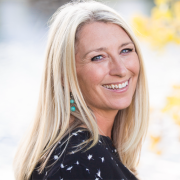
Letting down while hot flashing: a perimenopausal guide to lactation
Laurel Wilson, IBCLC, RLC, INHC, CLSP, CLE, CCCE, CLD - Read moreLetting down while hot flashing: a perimenopausal guide to lactation
Laurel Wilson, IBCLC, RLC, INHC, CLSP, CLE, CCCE, CLD
Laurel Wilson is a TedX and international speaker, women’s health and perinatal specialist, integrative nutrition health coach, international board-certified lactation consultant, speaker consultant, educator, and author. Laurel has authored two books, The Attachment Pregnancy and The Greatest Pregnancy Ever. Her passion is blending today’s recent scientific findings with mind/body/spirit wisdom to highlight the magnitude and importance of the perinatal period. Laurel has been joyfully married to her husband for more than three decades and has two wonderful grown sons, whose difficult births led her on a path towards helping emerging families create positive experiences. She believes that the journey into parenthood is a life-changing rite of passage that should be deeply honored and celebrated.
Letting down while hot flashing: a perimenopausal guide to lactation
With more parents than ever before delaying having children into their late 30s and early 40s, the reality is that most of them will be dealing with perimenopause while they are pregnant and lactating. Navigating the intricate balance of lactation while experiencing the hormonal fluctuations of perimenopause can be a daunting journey for many people. In this presentation, we delve into the complexities of supporting those who are perimenopausal in the perinatal period. We will explore the fascinating interplay between hormonal changes and lactation, shedding light on how fluctuating estrogen and progesterone levels can impact milk production and composition. Understanding these dynamics is essential for providing effective support during this transitional period. We discuss the changes to the microbiome and estrobolome that can impact milk supply and both lifestyle and medical support that may be required to optimize the breastfeeding/chestfeeding relationship. Finally, we delve into strategies to maximize milk output amidst the challenges of perimenopause. From dietary considerations to lifestyle adjustments, we uncover practical approaches that can help parents maintain a healthy milk supply and meet the nutritional needs of their infants. By addressing hormonal changes, providing access to resources, and offering strategies to optimize milk output, this presetnation aims to increase the knowledge and tools needed to navigate the unique intersection of lactation and perimenopause with confidence and resilience.
1.00 L (II,III,V,VI,VII) CERP
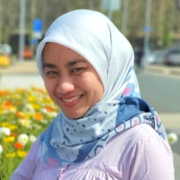
"We all believe in breastfeeding": Australian midwives experience of maintaining Baby-Friendly Hospital Initiative
Andini Pramono, BPH, MPH, IBCLC, PhD - Read more"We all believe in breastfeeding": Australian midwives experience of maintaining Baby-Friendly Hospital Initiative
Andini Pramono, BPH, MPH, IBCLC, PhD
Dr Andini Pramono has recently finished her PhD at the Australian National University. Using mixed-methods, her PhD thesis examined the facilitator and barriers of BFHI in Australia and Indonesia. The quantitative part was measuring the social value of BFHI accreditation and implementation in two hospitals in Australia and Indonesia, while the qualitative part was examining its barriers and facilitators from midwives and nurses’ perspectives. These have been published as 6 peer-reviewed papers in various international journals. During her PhD, she was awarded Deeble Summer Reseacrh Scholarship from Australian Healthcare and Hospitals Association (AHHA) with the outcome of a policy brief titled Improving the uptake of the Baby Friendly Health Initiative in Australian hospitals.
Dr Pramono is an International Board-Certified Lactation Consultant since 2017 and currently is Head of Research Division of the Indonesian Breastfeeding Mothers Association.
“We all believe in breastfeeding”: Australian midwives experience of maintaining Baby-Friendly Hospital Initiative
The education and support of new mothers during the in-hospital stay for childbirth is a critical time to establish breastfeeding. The Baby-Friendly Hospital Initiative was launched in 1991 to encourage maternity services to support and educate mothers to breastfeed by implementing Ten Steps to Successful Breastfeeding.
In this prospective, cross-sectional qualitative study we used focus groups to explore midwives’ experiences. Midwives (N = 26) participated in two focus groups conducted between October and November 2019. Data were analyzed using thematic analysis.
This presentation will describe midwives’ experiences of implementing the Baby-Friendly Hospital Initiative in a Baby-Friendly accredited public hospital in Australia.
1.00 L (VII) CERP
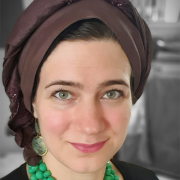
Islam and breastfeeding support: understanding cultural and clinical needs, as well as religious dispensations
Zainab Yate, MSc, BSc, CCHt - Read moreIslam and breastfeeding support: understanding cultural and clinical needs, as well as religious dispensations
Zainab Yate, MSc, BSc, CCHt
Zainab Yate is a Biomedical Ethicist, with a specialist interest in infant feeding. Zainab is Vice Chair and named qualitative lead on a paediatric flagged Research Ethics Committee Panel for the Health Research Authority (HRA) in the UK, reviewing research protocols for over a decade. Zainab’s previous working background is in Public Health and Commissioning the National Health Service (NHS) in the UK. She had also been a volunteer breastfeeding peer supporter with the NHS for a number of years, is the owner-author of the resource site for mothers and healthcare practitioners on Breastfeeding / Nursing Aversion and Agitation and author of When Breastfeeding Sucks.
Islam and breastfeeding support: understanding cultural and clinical needs, as well as religious dispensations
Muslim women around the world practice Islam in various ways that directly impact breastfeeding and parenting, this presentation brings to light the varied considerations of culturally appropriate language, support and intervention in some key areas such as Milk Banks and use of donor milk, and lactation assessment for Muslim women who choose to fast.
Breastfeeding and fasting in the month of Ramdan are significant religious acts of worship for Muslim women, globally for the past 1400 years. Whilst legal dispensations have long since existed within Islamic legal literature, the absence of a framework of harm-benefit analysis to be performed by an individual, a lack of lactation knowledge, cultural expectations, and social norms have overshadowed individual agency in adopting informed decision making. IBCLCs should be knowledgeable about the needs that Muslim breastfeeding women have; they are well placed to clinically manage and support these women.
1.00 L (V,VII) CERP
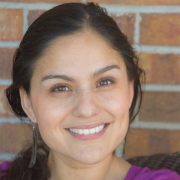
Perspectives in infant mental health for successful lactation
Paulina Erices-Ocampo, PhD(c), IBCLC - Read morePerspectives in infant mental health for successful lactation
Paulina Erices-Ocampo, PhD(c), IBCLC
Paulina Erices-Ocampo is a coufonder of Cuenta Conmigo Coop, a community-based worker cooperative focused on maternal child health in immigrant communities in Colorado, USA. She is a PhD candidate in Health and Behavioral Sciences at the University of Colorado Denver. Her areas of current work include: infant and toddler nutrition, infant and early childhood mental health, community development, and social network analysis.
Perspectives in infant mental health for successful lactation
The parent-child relationship is at the core of the establishment of breastfeeding, contributing to and supporting developmental milestones for babies and the whole family. A deep understanding of regulatory processes, baby’s communication skills development, and infant stages are essential for lactation professionals to support breastfeeding in a family and community context. In this presentation participants will learn about frameworks and tools to support breastfeeding with a lens on child development and infant mental health.
1.00 L (I,V) CERP
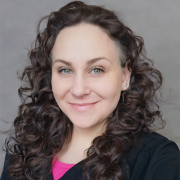
The scoop on poop: understanding infant defecation
Megan Dunn, BS, IBCLC, C-NLDS - Read moreThe scoop on poop: understanding infant defecation
Megan Dunn, BS, IBCLC, C-NLDS
Megan Dunn is an experienced Lactation Consultant, infant feeding specialist, and Health Educator with nearly two decades of experience providing comprehensive lactation education and clinical care. With a Bachelor of Science in Anthropology and Sociology and a minor in Communication, Megan offers holistic, evidence-based care and develops innovative care plans in a Trauma-Informed environment. She also is a lactation and infant therapist provider in a primary care setting. Megan is an award-winning breastfeeding advocate, currently serving as the President of the Oregon Washington Lactation Association, and has successfully implemented and developed clinical lactation services and Medicaid billing for Public Health lactation care.
The scoop on poop: understanding infant defecation
This presentation aims to educate lactation professionals about infant stooling norms through looking at a global lens and into historical data regarding infant defecation compared to modern expectations and acceptance. Participants will learn about the role of human milk, antibiotics, alterations in the infant diet, and the role of supplements on the effect of stooling frequency, color, consistency as well as develop and understanding of low-risk management techniques which can be used to improve infant gastrointestinal function and reduce commonly occurring symptoms associated with infant discomfort and colic. Additionally, participants will understand and accurately describe the differences between constipation, dyschezia, and other functional gastrointestinal diseases (FGIDs) and how feeding support can improve symptoms within care coordination.
1.00 L (I,VII) CERP

Providing lactation support for the neurodiverse family - a team approach
Sabrina Barber, BSN, RN, IBCLC, CD, CIMI - Read moreProviding lactation support for the neurodiverse family - a team approach
Sabrina Barber, BSN, RN, IBCLC, CD, CIMI
Sabrina Barber is a Registered Nurse, International Board Certified Lactation Consultant, Childbirth Doula and Certified Infant Massage Instructor. She is the owner of Motherly Love Lactation Services and Co-Founder of Baby BLISS Feeding Collaborative of Central Florida, LLC. She provides lactation support that empowers families with unique abilities and provides education to fellow providers to help them serve families with confidence! Sabrina has a background in Pediatrics, Obstetrics and Postpartum care. She is the Education Chair for the Board of Directors of Florida Lactation Consultant Association. Sabrina is an international speaker and has presented for FLCA, USLCA, ILCA, NZLCA. Sabrina is active in her community and has participated in the Black Doula Tour in 2022, Black Breastfeeding Week 2023, and events within her local health department and organizations. Sabrina’s professional experience was put into practice when she had two little ones of her own. She is the mother of two children with whom she has overcome many breastfeeding challenges such as: tongue ties, oral motor difficulty, severe food allergies, and more. Her oldest is autistic and has special needs. This has shaped the way she cares for families with unique differences. Providing collaborative care with her team at Baby BLISS for infants with complex medical histories is Sabrina’s specialty. Sabrina’s mission is to provide unbiased, culturally competent, and compassionate care for every family.
Providing lactation support for the neurodiverse family – a team approach
Breastfeeding/chestfeeding is a full sensory experience. Neurodiverse individuals may present with sensory processing challenges and experience significant barriers to achieving their feeding goals. It is recommended that all providers individualize care plans according to the parent’s unique processing needs. Neurodiverse-affirming support will improve breastfeeding/chestfeeding outcomes among this population.
1.00 L (V,VII) CERP

The tenderness & troubles of supporting UK Black postnatal families
Lorna Phillip, NNEB, PGCert Public Health, certified doula - Read moreThe tenderness & troubles of supporting UK Black postnatal families
Lorna Phillip, NNEB, PGCert Public Health, certified doula
Qualifying as a nursery nurse in 1987, Lorna Phillip has over 30 years’ experience of working with young children and their families. Lorna brings this wealth of experience to her work which made her one of the most sought-after doulas in Birmingham, UK.
Lorna has spent the past 12 years working all over the East and West Midlands as a birth and postnatal doula, preparing expectant parents for birth and supporting them through labour and the first few weeks of life with their babies.
The pandemic and ‘5 x More’ have meant more Black parents than ever were seeking out doula support for their births. To ensure that as many Black mamas and families as possible feel supported, Lorna created a free online community and paid membership called Black Mamas Birth Village where she offers information and support for pregnant Black expectant mamas.
The Village is a safe space for Black mamas to visit, sit a while and breathe whilst sharing information and tips for pregnancy, birth and beyond.
The tenderness & troubles of supporting UK Black postnatal families
A Black doula’s experience of supporting Black families to navigate the challenges of the postpartum period.
1.00 L (V,VII) CERP
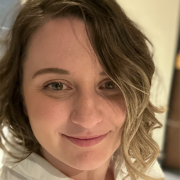
Impact of body image on breastfeeding
Samantha Wyton, MBBS, DCH, Clin Dip Pall Care, FRACGP - Read moreImpact of body image on breastfeeding
Samantha Wyton, MBBS, DCH, Clin Dip Pall Care, FRACGP
Dr Samantha Wyton was born and raised in Tasmania, Australia and graduated from the University of Tasmania in 2013. She worked at the Launceston General Hospital prior to starting General Practice training, largely in paediatrics.
Dr Wyton achieved Fellowship of the Royal Australian College of General Practitioners (FRACGP) in 2020, and completed a Diploma in Child Health in 2017. She became Southern Tasmania’s first NDC accredited practitioner in early 2022.
Dr Wyton’s perspective is holistic and person-centered, encompassing all the challenges and joys of raising young children, and she particularly enjoys supporting parents who have concerns about their own body image. She practices weight-inclusive care with a trauma-informed approach. Dr Wyton’s goal is to ensure that her patients feel safe accessing healthcare.
She has lived experience with breastfeeding difficulties and is passionate about supporting families to achieve their feeding goals.
Impact of body image on breastfeeding
This presentation will explore the prevalence of body image concerns in childbearing women and potential early intervention models. It will also discuss the use of language in breastfeeding and how this can impact body image concerns.
1.00 L (V,VII) CERP

Breastfeeding & sexual wellbeing
Sam Geuens, MSc, MA, PG - Read moreBreastfeeding & sexual wellbeing
Sam Geuens, MSc, MA, PG
Sam Geuens is a Belgian clinical sexologist, solution focused psychotherapist and ethicist. Sam has been lecturing student midwives at the PXL University College of Applied Arts and Sciences on sexual health, mental health, counselling and professional ethics for 10 years. Next to his teaching Sam counsels individual clients and couples on various sexual problems at the St Franciscus Hospital, Heusden-Zolder, Belgium where he currently practices.
Sam’s passionate efforts when it comes to people’s sexual health and wellbeing is mirrored in his engagements a board member for among others the Professional Society for Flemish Sexologists (VVS), the European Federation of Sexology’s Executive Committee (EFS). The largest part of Sam’s written work on sexual health topics consisted of contributions to educational books for healthcare professionals.
Breastfeeding & sexual wellbeing
During this presentation we will explore the current state of scientific knowledge on sexuality and breastfeeding, with the aim of informing the practicing midwife/lactation specialist. Both the impact of healthy breastfeeding and breastfeeding problems/pathology on women’s and couples’ sexual well being will be addressed. Building on that knowledge, participants will be given a clear framework and practice examples of how to integrate sexual wellbeing into your postpartum consultations.
1.00 L (V,VII) CERP

Low milk production detective work: assessment and care plan considerations
Melissa Cole, MS, IBCLC - Read moreLow milk production detective work: assessment and care plan considerations
Melissa Cole, MS, IBCLC
Melissa Cole is a board-certified lactation consultant, neonatal oral-motor assessment
professional and clinical herbalist in private practice in the USA. Melissa is passionate about providing
comprehensive, holistic lactation support and improving the level of clinical lactation skills for
health professionals. She enjoys researching and writing, especially on topics such tongue tie and
botanical medicine. Her bachelor’s degree is in maternal/child health and lactation and her
master’s degree is in therapeutic herbalism. Before pursuing her current path, Melissa’s
background was in education and cultural arts, which has served her well in her work as a
lactation consultant and healthcare educator. She loves living, working and playing in the
beautiful Pacific Northwest with her 3 children.
<3>Low milk production detective work: assessment and care plan considerations
Low milk production is one of the top areas of concern for families, and this presentation examines the various factors. Explore root causes of production issues, and hear specific and realistic recommendations. Work through interactive case studies, ramp up your critical-thinking skills, and improve your care plan strategies.
1.50 L (III,VI,VII) CERP
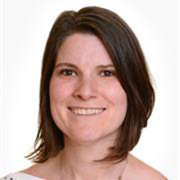
Supporting breastfeeding in substance use disorder: a patient-centered approach
Katherine Standish, MD, MSc - Read moreSupporting breastfeeding in substance use disorder: a patient-centered approach
Katherine Standish, MD, MSc
Dr Katherine Standish a fellowship-trained breastfeeding medicine specialist and health services researcher in the Department of Family Medicine at Boston University, USA. She is co-founder of the Breastfeeding Equity Center at Boston Medical Center, which aims to increase equity in breastfeeding support and outcomes. Her research addresses breastfeeding services and interventions in socially marginalized and medically high-risk populations. She currently serves as Chair of the Protocol Committee of the Academy of Breastfeeding Medicine. Dr Standish studied medicine at Yale University, completed residency training and a primary care academic fellowship at Boston Medical Center, earned her masters in Epidemiology at Boston University School of Public Health, and completed a fellowship in breastfeeding and lactation medicine through the University of Rochester.
Supporting breastfeeding in substance use disorder: a patient-centered approach
This presentation will review the epidemiology of breastfeeding among people with substance use disorder (SUD) with a focus on opioid use, and discuss the risk of formula/benefits of human milk specific to dyads with SUD. It will discuss social, medical and pathophwiologic mechanisms behind breastfeeding difficulties in people with SUD, and discuss strategies clinicians, hospitals and community services can take to best support people with SUD who are breastfeeding. Finally, it will briefly the new ABM clinical protocol on breastfeeding and SUD.
1.00 L (VI,V,VII) CERP
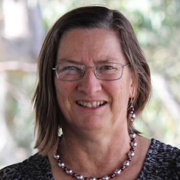
Improving visibility and investments in breastfeeding
Julie Smith, BEc(hons)/BA(Asian Studies), PhD - Read moreImproving visibility and investments in breastfeeding
Julie Smith, BEc(hons)/BA(Asian Studies), PhD
Dr Julie Smith is an Associate Professor and Australian Research Council Future Fellow in the College of Health and Medicine, Australian National University. Her recent research has focussed on the economics and environmental aspects of breastfeeding and markets in mothers milk.
She has advised the US Surgeon-General Office and WHO on the economics of breastfeeding, and conducted evidence reviews for WHO and the Australian Department of Health. She has also worked with international civil society organisations such as IBFAN and WABA. She recently led development of the Mothers’ Milk Tool and the Green Feeding Tool with Alive & Thrive Southeast Asia Pacific.
Dr Smith was previously a senior economist in the Australian and New Zealand government departments of Treasury, Finance, and Environment, working on development assistance and international finance, national accounting, taxation, and water markets.
She has published over 65 peer-reviewed articles, including recently in The Lancet, and is an Associate Editor for the International Breastfeeding Journal.
Improving visibility and investments in breastfeeding
Breastfeeding is economically undervalued for its health cost-saving impacts, and transformational change to the environment for breastfeeding is also unrecognised as a climate change policy response. This presentation will describe the development and display key features of two new nutritional tools, report selected results, and highlight advocacy opportunities using these tools.
1.00 E (VII) CERP

The commercial determinants of health and breastfeeding
Mélissa Mialon, BSc, MSc, PhD - Read moreThe commercial determinants of health and breastfeeding
Mélissa Mialon, BSc, MSc, PhD
Dr Mialon is a Research Assistant Professor at Trinity College Dublin in Ireland. Her research focuses on the commercial determinants of health (CDoH). She is the co-author of a Lancet series and a book on the topic, entitled « Big Food & Cie », in French. Dr Mialon co-coordinates the « Governance, Ethics and Conflicts of Interest in Public Health » (GECI-PH) network.
The commercial determinants of health and breastfeeding
Participants will learn about commercial determinants of health, and how this translates into influence on infant and young child feeding.
1.00 E (VII) CERP

Is it a lip tie? Implications of the maxillary frenulum on breastfeeding 2024
Gina Weissman, DMD, RN, IBCLC, FABM - Read moreIs it a lip tie? Implications of the maxillary frenulum on breastfeeding 2024
Gina Weissman, DMD, RN, IBCLC, FABM
Dr Gina Weissman is a D.M.D. dentist, an RN nurse and an IBCLC certified Lactation Consultant, since 1999. She has been a fellow of ABM since 2017. She is the owner and director of The Lactation Academy, an international school for the training of lactation consultants and an IBCLC mentor. She lives in Israel and works in Laniado Maternity Hospital and at her Breastfeeding and Tongue Tie Clinic, HalavM. She is the exiting president of the Israeli association of certified lactation consultants. She is also a published researcher on several related topics.
Gina is married and the mother of four grown breastfed boys.
Is it a lip tie? Implications of the maxillary frenulum on breastfeeding 2024
Many infants undergo surgical intervention for “upper lip tie” (ULT) to improve breastfeeding. However, the effect of ULT on breastfeeding and if surgical correction improves outcomes is still poorly understood with scant and contradictory data. There are multiple reasons for the limited amount of data including the lack of a standard definition for ULT which has led to ambiguity regarding a normal vs. abnormal frenulum and which may benefit from correction.
This presentation summarizes and analyzes the current literature on upper lip tie, its impact on breastfeeding and utility of therapeutic surgical intervention.
1.00 L (I,II,VI,VII) CERP
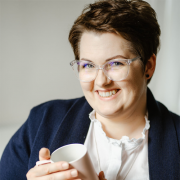
Mysterious manuscript, our own beliefs, and opinion of a brother-in-law's cousin's sister. How to approach evidence-based data in the field of medications in lactation.andA balancing act. How to assess risk vs benefit ratio when it comes to depressive spectrum disorders medications in lactation.
Karolina Morze, MPharm - Read moreMysterious manuscript, our own beliefs, and opinion of a brother-in-law's cousin's sister. How to approach evidence-based data in the field of medications in lactation.andA balancing act. How to assess risk vs benefit ratio when it comes to depressive spectrum disorders medications in lactation.
Karolina Morze, MPharm
Karolina Morze is a pharmacist and specializes in pharmacotherapy in lactation. She works as a consulting pharmacist in a private practice in Poland. In her clinical practice she works with lactating individuals with various health issues, helping mothers with both common problems, chronic or rare diseases to reconcile the therapy and breastfeeding with as little intervention as possible, respecting mothers’ wishes and needs.
She conducts training for IBCLCs, midwives, doctors, pharmacists and other medical professionals as well as non-medical lactation supporters in the field of medication and breastfeeding, attempting to explain complex pharmacological problems in an easy to understand way. She conducts research on the Drug Related Problems and outcomes of maternal medication on the breastfed children.
She is a member of the Polish Society of Clinical Pharmacy and Polish Society of Pharmacovigilance. She is also an author of several books and publications.
Mysterious manuscript, our own beliefs, and opinion of a brother-in-law’s cousin’s sister. How to approach evidence-based data in the field of medications in lactation.
This is a storytelling presentation on the quite under researched area of how our attitudes as medical professionals towards breastfeeding can generate potential risk of bias and risk of medical errors. It touches sensitive areas of our own shortcomings, and how we can overcome them. I talk about medication and breastfeeding databases (lactmed, elactatncia), research, books, facebook groups and opinions of our relatives as source of information
and point what do we learn from them in context of critical thinking skills. The takeaway message from this presentation is that we are all
susceptible to cognitive biases, but when we are aware of that, our work with breastfeeding patients can become better and easier.
1.00 L (VI) CERP
A balancing act. How to assess risk vs benefit ratio when it comes to depressive spectrum disorders medications in lactation.
This presentation explores the complexities of assessing medication safety for depression in lactating women. It delves into the challenges of weighing risks and benefits, common obstacles faced in this evaluation, and various scenarios to consider. Risks associated with medication, infant exposure via breastmilk, formula feeding, not breastfeeding at all, and the consequences of untreated depression will be discussed. Additionally, the presentation will explore how patient autonomy laws impact decision-making in this context.
1.00 L (VI) CERP


